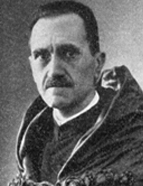

Still in this year and before an audience of Brazilian authorities, he delivered an improvised lecture in the Royal Reading Room of Rio de Janeiro on 10 June that he wrote up afterwards under the title Sentido Universal da Expansão Portuguesa (Universal Meaning of the Portuguese Expansion). There were pages of Luso-Brazilian exaltation much in line with the rhetorical taste of the time: “Brazilians and Portuguese people! Let us sit then at the fireside of History and let us open the book of the human epic; therein are splendorous pages whose glory is common to us both, as our blood and tongue are also common!” (p. 6). For him, the major questions surrounding the discovery of Brazil were resolved, but he would later return and show an interest in three African voyages of the greatest importance; those of Diogo Cão in 1482 and 1486, and that of Bartolomeu Dias in 1487-1488. His purpose was always to show the priority of the Portuguese Discoveries, whilst seeking not to slip into a form of nationalist history which he condemned on several occasions.
While engaged on this, he continued to devote his attention to the history of coinage about which he would later publish the História monetária de D. João III: subsídios para a história portuguesa (Monetary History of D. João III: subsidies for Portuguese history,1957); as Casas da Moeda restabelecidas ou projectadas em Portugal-Metrópole e no Brasil durante a Restauração (Mints established or planned in Metropolitan Portugal and in Brazil during the Restoration, 1959); and O Conselho da Fazenda e as alterações monetárias do reinado de D. João IV (The Treasury Council and the monetary alterations in the reign of D. João IV, 1959). In these matters no-one was his equal.
In 1960 he collaborated actively with the Commemorations of the 5th Centenary of the Death of the Infante D. Henrique, a figure who was always one of his own favourites, and a favourite shared by many at the time. To disseminate knowledge of D. Henrique, Damião wrote an excellent work called História dos Descobrimentos Portugueses (History of the Portuguese Discoveries) which figures in the ‘Colecção Henriquina’ (Henrique Collection), the official publication of the Executive Commission of the Commemorations of the 5th Centenary of the Death of the Infante D. Henrique, along with works by Jaime Cortesão, Armando Cortesão, Vitorino Nemésio and other authors – some much less well-known. However, he also made another notable personal contribution by studying – and proving – the Portuguese priority of the circumnavigation of the southernmost tip of Africa by Bartolomeu Dias. In this text, as was his style, he investigates the history of the story of a supposed Arabic navigation written by Henry Major in 1868. This was a stance that had later been taken up by others so Damião Peres decided to study it again, ready to rebut point by point all the arguments that had been presented. This obliged him to look at documents on the writings of Arab geographers, navigational map makers and early cartography. At the centre of his argument was his analysis of the 1459 map by Fra Mauro. It was a worthy commemoration which he offered with incisive erudition and tight argumentation, thereby providing a convincing argument.
